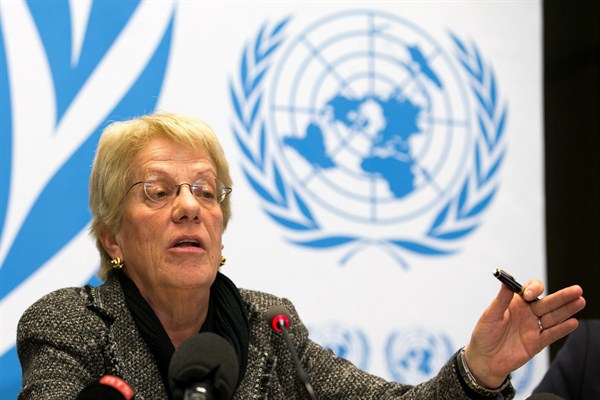Amid the torrent of news this week regarding multiple brewing crises from North Korea to Venezuela, one item of seemingly minor importance managed to filter through. It was a personnel matter, a bureaucrat’s decision, but one that highlights the magnitude of the current struggle to develop an international system for conflict resolution, accountability and justice.
On Sunday, the Independent International Commission of Inquiry on Syria confirmed that its most prominent member, Carla del Ponte, had resigned from the body.
The resignation points to a major flaw in the system: the ability of powerful players, in this case Russia, to thwart the pursuit of justice. It also highlights the depth of the impact of Russia’s intervention in Syria. Del Ponte’s departure signals that it is increasingly unlikely Syrian President Bashar al-Assad, who in using chemical weapons against civilians committed a war crime, will face justice anytime in the foreseeable future. That would represent a decisive victory for Moscow.

